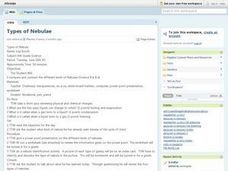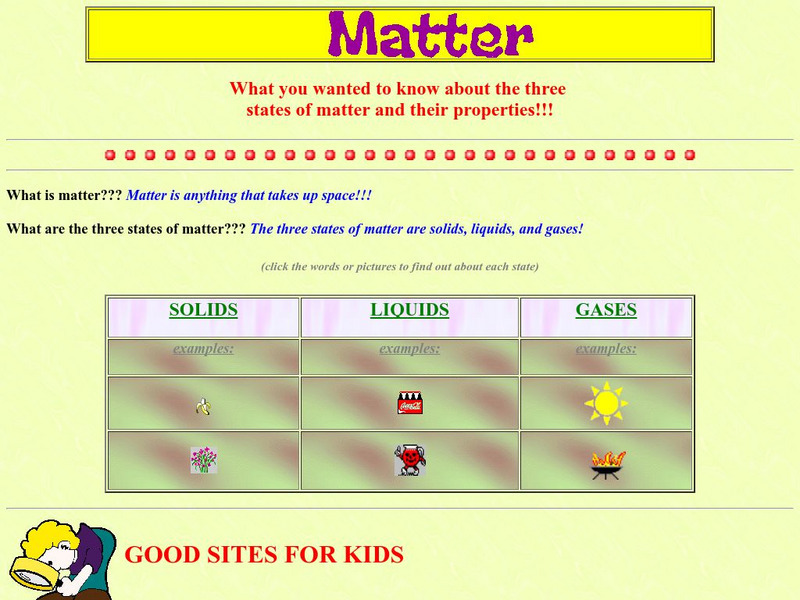Curated OER
Weather Wonderland
Second graders explore the types of tools that scientists use t o study weater,
Curated OER
Types Of Nebulae
Eighth graders explore the different types of nebulae that can be found in the solar system. They view a PowerPoint presentation about the material and identify each nebulae as it is presented. Students also discuss the life cycle of a...
Curated OER
Wet Dry Ice Lab
In this wet dry ice worksheet, students read the information about dry ice and phase change. Students perform an experiment in which they observe phase changes of ice. Students answer analysis questions as it relates to the phase change...
Chiral Publishing
Chiral Publishing: An Introduction to Chemistry: Solids, Liquids, and Gases: Audio Book
An interactive guide to the basics of solids, liquids, and gases. Wonderful pictures show the makeup of each and how the particles move in these states of matter.
TED Talks
Ted: Ted Ed: Solid, Liquid, Gas and Plasma?
Have you ever seen static electricity cause a spark of light? What is that spark? What about lightning, the Northern Lights, or the tail of a comet? All of those things and many others in fact, 99.9% of the universe -- are made of...
Purdue University
Purdue Univ: Gases, Liquids, and Solids
This site has a brief description of the differences in particles in a gas, liquid, and solid. Animated microscopic pictures demonstrate the molecular movement in each state. Information is then summarized in an easy-to-read chart.
Other
Elementary Science: Matter
Colorful site provides a brief summary as well as engaging pictures of the three states of matter: solid, liquid and gas.
CK-12 Foundation
Ck 12: Plix: Structure of Water: Phases of Matter
[Free Registration/Login Required] Explore this interactive by dragging the red dots to match each physical state of water with the correct picture of its molecules.









